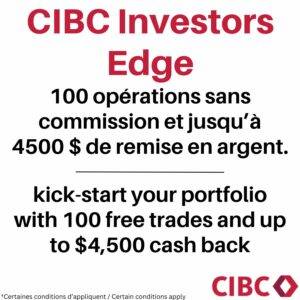In this post, we will review a popular index ETF on the TSX: the Vanguard S&P500 ETF. We will first explain what’s an index ETF. Then, we will discuss VFV’s historical performance, fees and holdings. Finally, we will compare VFV against similar ETFs.

VEQT review: Vanguard All-Equity ETF Portfolio
Best ETF Canada: Top 7 offered by BMO
Why invest in an Index ETF that track the S&P500?
The S&P500 is a snapshot of the best the US economy has to offer
Investing in the S&P 500 is a compelling proposition for Canadian investors seeking exposure to the largest and most prosperous businesses in the USA. Through the use of a simple fund, such as an S&P 500 index ETF (Exchange-Traded Fund), investors can easily tap into the growth potential of a diverse range of top-tier American companies. This strategy is especially appealing to long-term investors, a sentiment endorsed by legendary investor Warren Buffett, known for his advocacy of index investing and his admiration for the S&P 500.
The S&P 500 index represents a comprehensive snapshot of the US stock market, encompassing 500 of the most significant publicly traded companies. This diversity spans across various sectors, mitigating the risk associated with individual company performance fluctuations. By investing in an S&P 500 index ETF, Canadian investors can achieve broad market exposure without having to pick individual stocks, effectively reducing the risk of poor stock selection.
High Liquidity
One of the key advantages of investing in the S&P 500 through an ETF is the ease of access it offers. ETFs are traded on stock exchanges, providing investors with the flexibility to buy and sell shares throughout trading hours. This liquidity ensures that investors can swiftly enter or exit positions, granting them control over their investments. Additionally, ETFs generally come with lower fees compared to actively managed funds, making them a cost-effective option for investors looking to optimize their returns over the long term.
Historical performance
The S&P 500’s historical performance underscores its attractiveness for long-term investors. Over the past several decades, the index has exhibited strong and consistent growth, outpacing inflation and generating substantial returns. While short-term market fluctuations are inevitable, the S&P 500’s overall trajectory has been upward. This aligns with the principles of long-term investing, where time in the market is emphasized over timing the market.
Warren Buffet is a big fan of the S&P500
Warren Buffett, often referred to as the Oracle of Omaha, has consistently praised the merits of index investing and has frequently recommended the S&P 500 as a solid foundation for investors’ portfolios. His endorsement is rooted in the index’s ability to capture the overall growth of the American economy, which has historically been a reliable driver of long-term wealth accumulation.
Furthermore, Warren Buffett has advocated for low-cost investing, which aligns with the structure of index ETFs. These funds typically have lower expense ratios compared to actively managed funds, leading to less erosion of returns over time. This resonates with the legendary investor’s belief in maximizing returns by minimizing fees and expenses.
Low fees
One significant advantage of owning an index ETF is low fees. The manager is simply replicating the index’s performance either by acquiring directly or indirectly (using derivatives) the constituents of the index. There is no additional effort involved in the selection process, thus no need to generously compensate the portfolio manager. It might also be pertinent to know that empirical studies have consistently shown that active portfolio managers rarely beat the S&P 500 index in the long term. In other words, only a few managers can outguess the market in the long run.
MER and Asset under management
| Name | MER | AUM | |
| VFV | Vanguard S&P 500 Index | 0.08% | 5,310 |
| XUS | Ishares Core S&P 500 Index | 0.10% | 4,616 |
| ZSP | BMO S&P 500 Index | 0.09% | 10,450 |
VFV has one of the lowest Management Expense Ratio in its category at 0.08%. The difference with other similar ETFs remain really small though.
All-in-one ETFs are the Best ETF Canada 2021
Historical performance
Updated daily
Since all three ETFs track the same index and it’s understandable they will have very close performance.
VFV ETF: Morningstar rating
VFV Stock Profile
Updated daily
VFV Stock 52 weeks high and low
VFV Dividend history
| Amount | Frequency | Ex-Div Date | Record Date | Pay Date | Declare Date |
|---|---|---|---|---|---|
| 0.3165 | Quarterly | 9/28/2023 | 9/29/2023 | 10/6/2023 | 9/21/2023 |
| 0.3235 | Quarterly | 6/29/2023 | 6/30/2023 | 7/10/2023 | 6/22/2023 |
| 0.3281 | Quarterly | 3/24/2023 | 3/27/2023 | 4 | |
VFV ETF Holdings
| Holding Name | Weight % |
|---|---|
| Apple Inc. | 6.03 |
| Microsoft Corp. | 5.74 |
| Amazon.com Inc. | 3.88 |
| Facebook Inc. Class A | 2.19 |
| Alphabet Inc. Class A | 2.18 |
| Alphabet Inc. Class C | 2.03 |
| Tesla Inc. | 1.70 |
| NVIDIA Corp. | 1.40 |
| Berkshire Hathaway Inc. Class B | 1.37 |
| JPMorgan Chase & Co. | 1.32 |
VFV Sector allocation
| Sector | Fund |
|---|---|
| Information Technology | 27.6% |
| Health Care | 13.3% |
| Consumer Discretionary | 12.4% |
| Financials | 11.4% |
| Communication Services | 11.3% |
| Industrials | 8.0% |
| Consumer Staples | 5.8% |
| Energy | 2.7% |
| Real Estate | 2.6% |
| Materials | 2.5% |
| Utilities | 2.4% |
| Total | 100.0% |
What are the Fees associated with ETFs
Management Expense Ratio (MER):
The percentage of a fund’s average net assets paid out of the fund each year to cover the day-to-day and fixed costs of managing the fund. The figure is reported in the Fund’s annual management report of fund performance. MER includes all management fees and GST/HST paid by the fund for the period, including fees paid indirectly as a result of holding other ETFs.
Management Fee:
The annual fee payable by the fund to the manager of the fund for acting as trustee and manager of the fund. This fee forms the largest portion of the MER. Typically, included in the management fee are the costs associated with paying the custodian and valuation agents, registrar and transfer agents, and any other service providers retained by the manager.
Operating Expenses:
Other operating costs such as fees and expenses relating to the independent review committee, brokerage expenses and commissions, and taxes.


